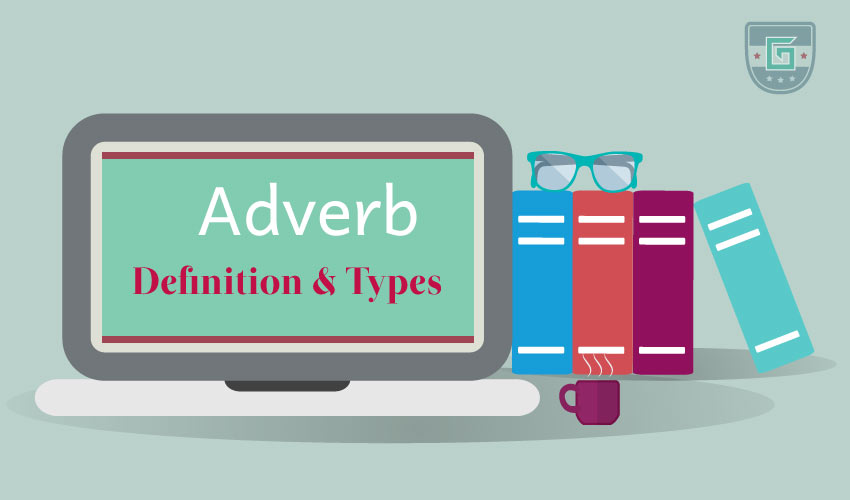Back to: ENGLISH LANGUAGE JSS3
Welcome to Class !!
We are eager to have you join us !!
In today’s English Language class, We will be learning about Adjectives and Adverbs. We hope you enjoy the class!

STRUCTURE: Adjectives and Adverbs
Content:
- What is an adjective?
- Types of adjectives
- Comparison of adjectives
- What is an adverb?
- Types of adverbs
- Comparison of adverbs
An adjective tells us what something or someone seems like. It is used to describe a noun or pronoun.
Examples:
- Tola is a beautiful girl.
- It is rather warm in here.
- Can I have five sweet buns, please?
Types of adjectives
- Descriptive adjectives: These tell about the kind/quality of a noun or pronoun.
Example:
Pretty girl;
White roses;
Large sack;
Funny man. etc.
2) Adjective of number or quality: These usually come before nouns and show “how many” or “how much” of the noun
Definite: One, eleven, double, second, both etc.
Indefinite: All, any, few, many, much, some, several, etc.
3) Demonstrative Adjectives: These point out nouns which follow them.
Example: this house; these forms; such games; that table; these boys
4) Interrogative adjectives: These adjectives ask questions and come before nouns.
Examples:
Which door?
What present?
Whose shoes?
5) Possessive Adjectives: These show ownership or possession.
Examples:
My pen
Your ruler
His bicycle
Its leg
Comparison of Adjectives
Adjectives have three degrees of comparison.
These are:
- The Positive: This is used when describing an object or a person only.
Examples:
She is tall
Musa is young and handsome.
Also:
She is as tall as her mother.
Musa is not as playful now as he was before.
- The Comparative: This is used to compare two things (nouns)
Examples:
Taller, younger, more beautiful, bigger, more expensive e.t.c.
- The superlative: This is used to compare more than two nouns
Examples:
Tallest, youngest, most beautiful, biggest, most experienced, e.t.c.
ADVERB

An adverb is a word used to describe or modify a verb, that is, how, where, or when, an action is performed.
An adverb can also modify an adjective, another adverb, a whole sentence or a prepositional phrase.
Examples:
- She is very
- He ran very
- Actually, we don’t know.
- The ball flew right through the window.
Types of adverbs
- Adverbs of manner: These describe “how” actions are performed.
Examples
Happily, easily, loudly, well e.t.c.
- Adverbs of time: These describe “when” actions are performed.
Examples
Soon, then, now, before, since, already e.t.c.
- Adverbs of place: These describe “where” actions are performed.
Examples
Here, there, everywhere, nowhere.
- Adverbs of degree: These describe “how much” actions are performed.
Examples
Almost, much, only, quite, very, too, so, rather, etc.
- Adverbs of frequency: These describe “how often” actions are performed.
Examples
Once, twice, again, almost, often.
- Adverbs of interrogation: These are used in questions.
Examples
Where, when, how
- Adverbs of Negation
Examples:
No, not, nothing, nowhere, never etc.
Comparison of Adverbs
Adverbs are composed in the same way as Adjectives.
Study the following example:
| Positive | Comparative | Superlative |
| Early | Earlier | Earliest |
| Far | Farther | Farthest |
| Fast | Faster | Fastest |
| Well | Better | Best |
| Much | More | Most |
| Soon | Sooner | Soonest |
| Badly | Worse | Worst |
| Easily | More easily | Most easily |
| Slowly | More slowly | Most slowly |
| Willingly | More willingly | Most willingly |
Evaluation: Do practice exercise four, question 3, page 20 of English Grammar by P.O. Olatunbosun.
Reference: The New Student’s Companion for Secondary School; English Grammar by Olatunbosun.
Evaluation: Do practice 1 on page 41.
Reference: Effective English for JSS Book 3, page 243.
Reading Assignment: Read page 243 of the Effective English for JSS Book 3.
GENERAL EVALUATION /REVISION QUESTIONS
- Write out five terms used in Agriculture and make sentences with them.
- Rewrite the following using the comparative or superlative forms of the adjectives.
- Mount Kilimanjaro is the (high) mountain.
- He is the (good) Math teacher we have.
- Is Emeka (popular) than his sister?
- It was (cool) yesterday than today.
- What are the functions of adverbs and adjectives?
Weekend Assignment: Do practice exercise nine on page 44 of English Grammar by P.O. Olatunbosun.
We have come to the end of this class. We do hope you enjoyed the class?
Should you have any further question, feel free to ask in the comment section below and trust us to respond as soon as possible.
In our next class, we will be reading a Comprehension on the Nervous System. We are very much eager to meet you there.

I love your classes
I love this class